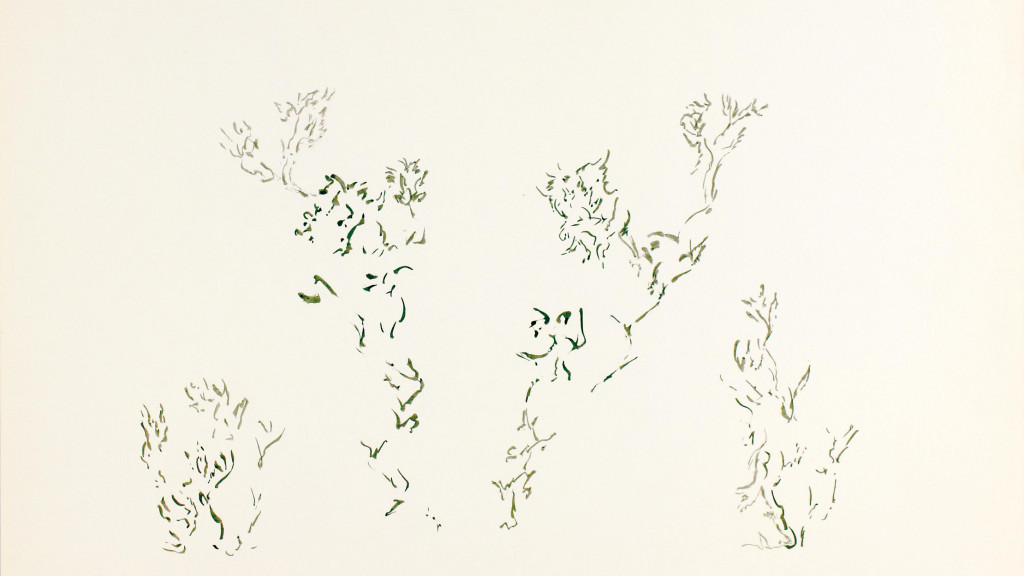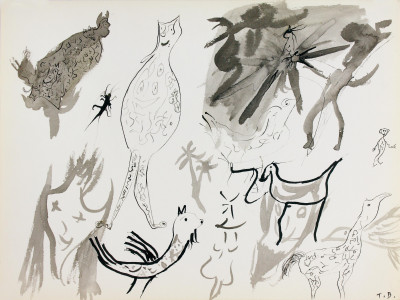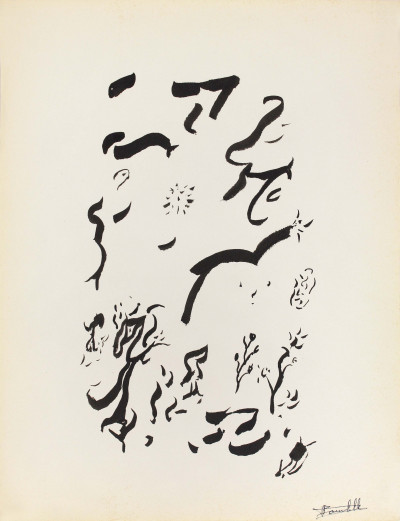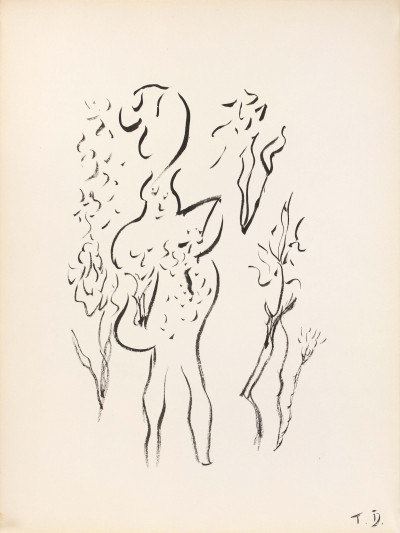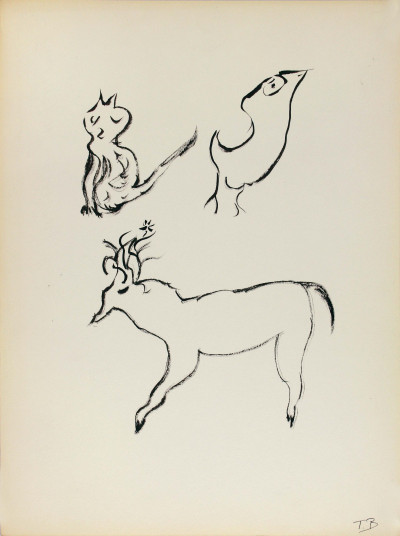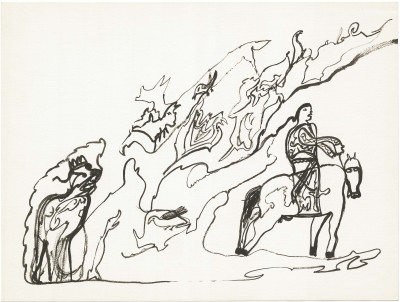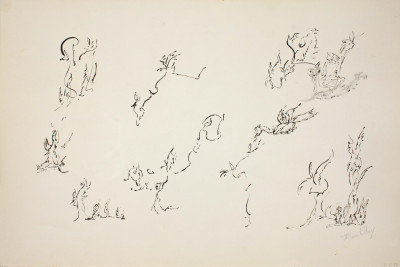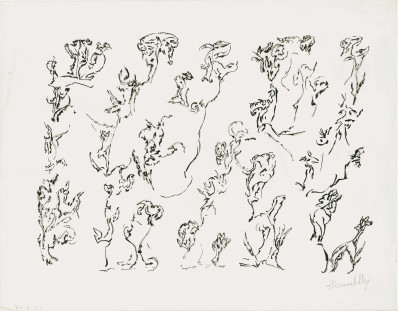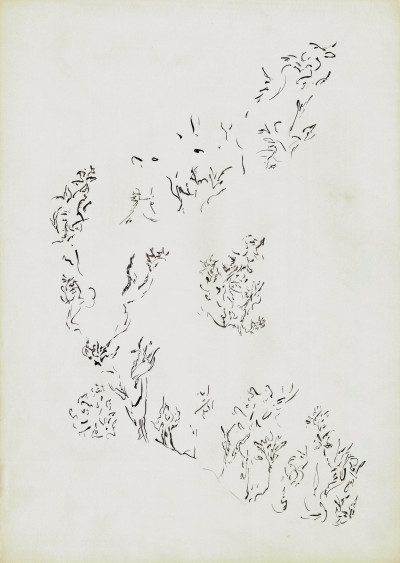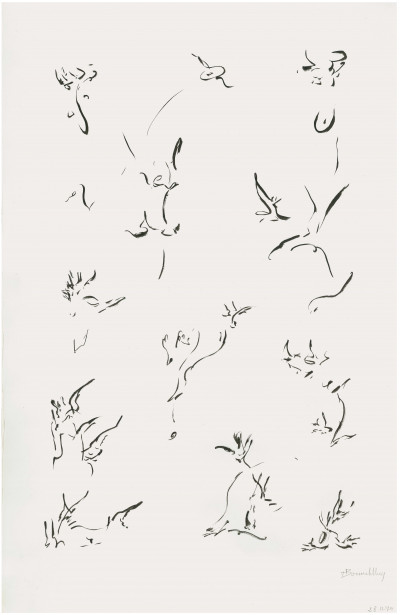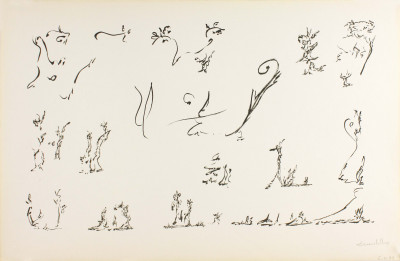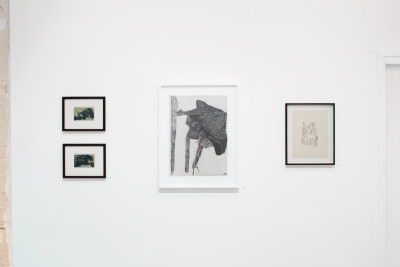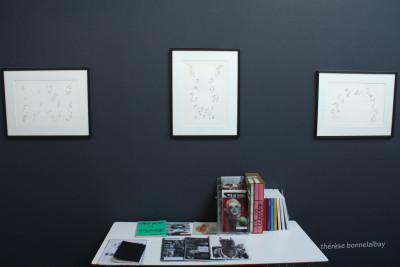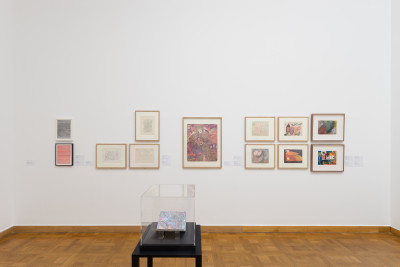Thérèse Bonnelalbay
A nurse by trade, it was during meetings at the Marseille Communist Party that she began drawing in the 1960s. Found drowned in the Seine in 1980, she left behind an exceptional body of work. Often compared to Henri Michaux, her ideographic drawings in Indian ink are full of mystery. In 1967 she was part of the historical exhibition L’Art Brut at the Musée des Arts Décoratifs in Paris. Now present in numerous collections, including the Collection de l’Art Brut (Lausanne), the LaM (Villeneuve d’Ascq) but also in the abcd/Bruno Decharme collection (France), a dossier is devoted to her in the Fascicule de l’Art Brut n°11.
Thérèse Bonnelalbay was born in the Hérault in southern France. Her father was a coalminer. At the age of 29, she went to live in Marseille to work as a nurse. Some years later, in 1959, she married Joseph Guglielmi, a school teacher with whom she had two children. The couple had strong political convictions and regularly attended Communist Party meetings.
It was at one of these meetings, in 1963, that Bonnelalbay mechanically began doodling with an ink pen on a random piece of paper. Her husband, impressed by the unusual shapes, encouraged her to continue, and so for many years she allowed her hand to meander over the white surface of sheets of paper. Her productions, initially intended as figurative, progressively flourished, becoming ethereal abstractions in which drawing and writing came together instead of diverging. Sketches, ideograms, simulacra or imaginary alphabet? Our indecision on seeing her works gives them their strength. Her light sketches touch on the mysteries of the unconscious and plunge us like the explorations of Henri Michaux, into the heart of a graphic fantasy where the line between picture and writing fades away, where the ineffable wells up. The family then settled in Ivry-sur-Seine. On 16 February 1980, Bonnelalbay disappeared. She was found drowned in the Seine one month later. She left an extraordinary collection of work.
Her drawings, greatly admired by Jean Dubuffet, are to be found in major collections, including those of Lausanne and the LaM in Lille.
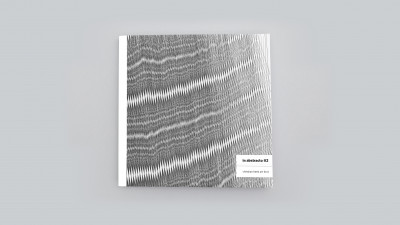
Preface : Raphaël Koenig.
Foreword : Christian Berst.
Catalog published to mark the exhibition In abstracto #2, from March 5th to May 30th, 2020.
